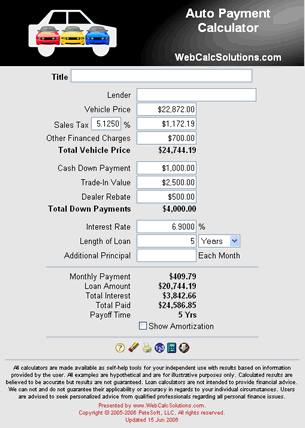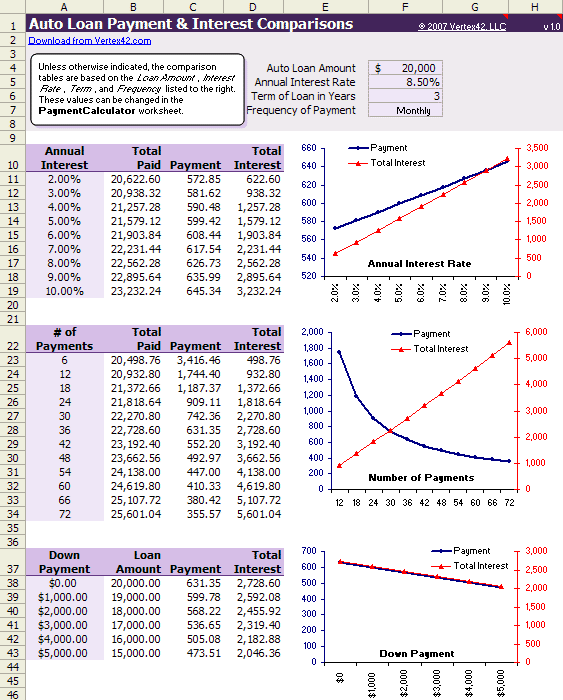

How Is Interest Calculated on a Car Loan?Īn auto loan interest calculator shows the total amount of interest you'll pay over the life of a loan. The most important factor in all of this is simple: does it fit into your budget? Whether you’re not sure where to start with your budget or you’re looking for tips to level up your skillset, you can check out our blog posts on Money Management for more helpful articles! We want to provide you the kind of financial advice you need to accomplish your goals.Use the auto loan calculator before you head to the car lot so you'll be ready to find a car that fits your budget and negotiate the best deal. Remember, the more you put down, the less your monthly payments will ultimately be. Typically, experts recommend putting down at least 20% of the purchase price. A dealer may have a required down payment, but buyers will sometimes pay more if they have the money on hand. Because of this, larger loans may pack a higher interest rate.Ī down payment is money that you pay upfront when buying something on credit.

Your interest rate is set by the bank but can vary depending on several factors. With compounding interest, on the other hand, your monthly interest payments will be based on the principal and the interest that has already accumulated.

With simple interest, you’ll just pay a certain percentage of the loan principal. There are two types of interest that you’ll see with auto loans: simple interest and compounding interest. It’s calculated as a percentage of your total loan amount and is added to the principal balance of the loan.

With auto loans, the rate is fixed, meaning it doesn’t change over time. The loan rate, also called the interest rate, is what a lender charges in exchange for you being able to borrow the funds. However, if your interest compounds, you’ll pay more overall due to more interest payments. If you have a longer loan term, your monthly payments will be smaller. With a shorter loan term, you’ll have larger monthly payments but pay off the loan quicker. Your term affects how large your car payments will be, as well as how much you will ultimately pay. The most common loan term is six years, with seven-year loan terms following close behind. In 2020, the average loan term for a new car was 70.6 months, which is nearly six years. You can find auto loans with terms anywhere between 24 months and 84 months, or two to four years. Loan Term (months)Įvery loan or lease has a set term, or period of time, during which you’re supposed to pay off the loan. The dealer might suggest you roll the negative equity into your next car loan, but this means you will begin your new loan already upside-down-meaning you will owe more than your asset is worth. If your car is worth less than the amount remaining on the loan, you should be extra cautious when trading in your car. When you trade your car into the dealer, they will pay the loan off. Amount Owed on Trade-Inĭo you have an outstanding loan balance on the car you’re trading in? You’ll need to account for that here, as it will be subtracted from the overall trade-in value. Be sure to get-in writing-how much they value your trade-in. Trading in a car? The value will count toward your overall purchase price! But beware-what you think the value of your car is and what the dealer will actually give you for it are two different things.


 0 kommentar(er)
0 kommentar(er)
